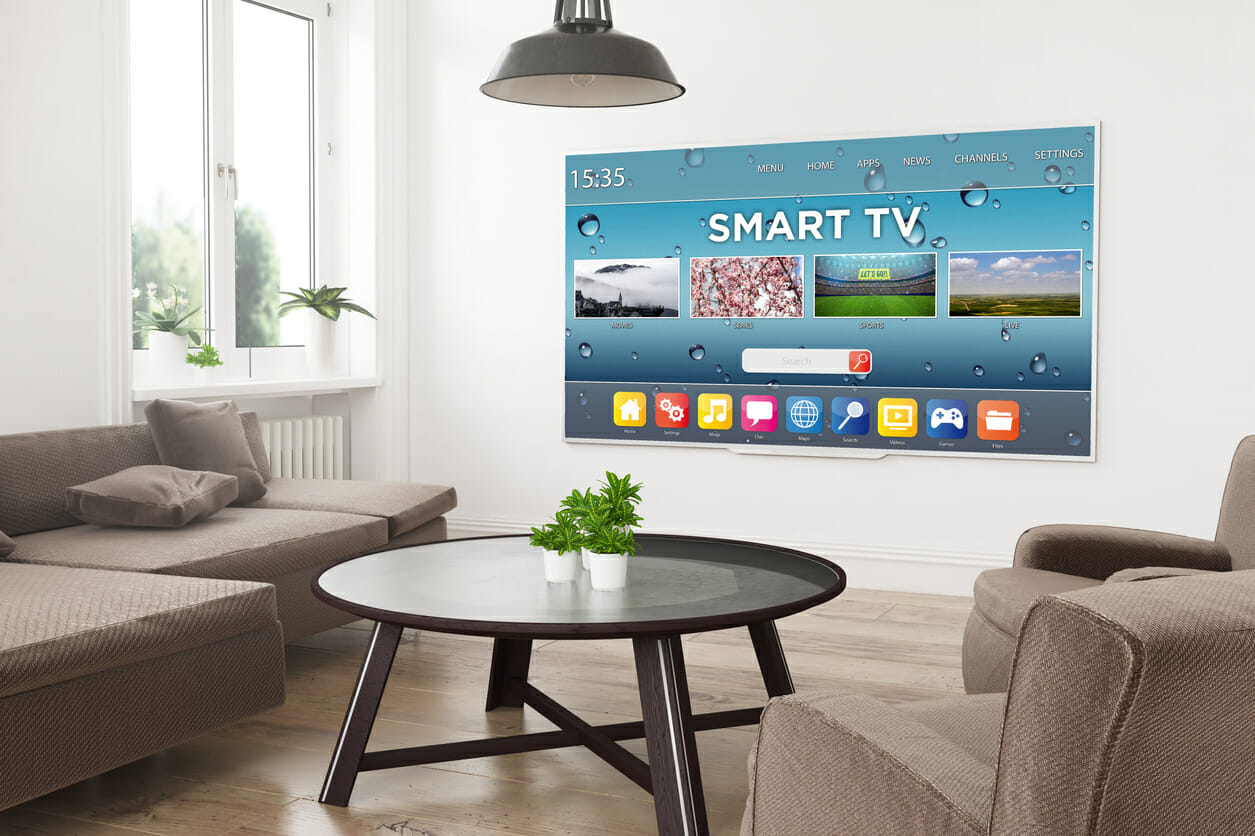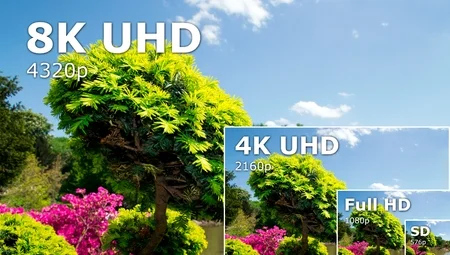Table of Contents
UHD (Ultra HD) Vs. HD: Which one is the real deal?
If you are in the market for a monitor, you must have come across the two terminologies:4K UHD and HD resolutions. Several brands say that their computer monitor, home projector, gaming monitor, etc., feature 4K (Ultra HD) resolution. What does the Ultra High Definition mean, and what is its difference from full HD? See also 'What Does HD Mean?'.
What about numbers such as 720p, 1080i, and 1080p? What do they stand for? You need to pay attention to these aspects as they affect the price of the screens and the quality of images you get.
Let's get into it.
Screen Resolution: UHD Vs. HD
Full HD and HD TV screen resolutions affect the quality of images that you see on the screen. Screen resolution refers to the pixel count in digital marketing. So, how do the UHD and HD screen resolutions compare?

What Does Full HD Resolution Mean?
Both 4K UHD and Full HD represent a display's resolution. The Full HD resolution means the display has 1920p pixels resolution and 1080p vertical pixels.
If you want to watch Full HD images without an FHD projector or TV, you require a Blu-ray player and connect the display using an HDMI cable. A Blu-ray disc with an HD format is also vital.
What Does Ultra HD Mean?
UHD stands for Ultra High Definition or Ultra HD, which is 4K (see 'What Does UHD Mean?' post). 4K stands for the horizontal screen resolution with 4,000 pixels. The features of 4K UHD are different in various professional fields, resulting in varying definitions of vertical and horizontal pixels.
The 4K UHD refers to two high definitions, including 3840 x 2160p and the 4096 x 2160 pixels. Before you can buy a 4K display, you need to pay attention to various specifications. For instance, your display equipment should match the 4K resolution, such as an HDMI 2.0 terminal that can transmit 4K/60p signals.
Is There a Significant Difference Between Ultra HD and HD TV?
Will you see a significant variance when watching 4K UHD and Full HD movies?
Most people wonder if there is any difference between the two screen resolutions before buying a screen. Is it worth spending the extra cash to purchase the 4K UHD screen while you can be okay with the Full HD screen?
When you compare the two displays in terms of image resolution, you can notice a significant difference between the old and new resolutions. The 4K display has more resolution, which ensures better picture quality and more detailed images.
A 4K UHD display offers better color accuracy resulting in more natural, lifelike, and clear images, which help to move the audience. Additionally, the Ultra HD resolution display offers a wide variety of viewing angles. You don't have to worry about your viewing angle while watching a movie or playing a game with friends. The image quality and color accuracy are not distorted with changing viewing positions.
The high-quality images and color accuracy ensure you enjoy the most immersive experience, whether watching a movie or playing a game. In addition, check out how UHD TVs compare to ones based on QLED technology.

4K Vs. 8K Vs. 1080p: TV Resolutions
Does 8K resolution mean it is twice as good as 4K resolution? And is 1080p the same as 4k resolution?
Resolution is one of the most used factors and specifications when TV makers are selling TVs. Although it is an essential factor to consider, it is not the only factor to look out for. Additionally, resolution refers to the pixels in a picture, determining the picture quality.
However, just because a display comes with a higher resolution doesn't mean it will look better. Other factors such as a screen's contrast ratio and High Dynamic Range (HDR) performance also affect the image quality and other aspects, such as viewing angles.
That being said, it is vital to understand the various resolutions offered by TV makers.
4K and 8K Resolutions
When talking about TVs, Ultra HD, UHD, and 4K resolution refer to the same thing. The TVs and almost all UHD content from Amazon, Netflix, etc., have the same resolution at 3,840 x 2,160 resolution.
4K refers to a horizontal resolution of a screen with 4, 096 pixels. The Digital Cinema Initiatives set the resolution as movies come in varying aspect ratios (see 'What is Aspect Ratio?'), which is the ratio of the rectangle screen, while the vertical resolution is not specified.
An 8K resolution uses the same explanation. While referring to TVs, an 8K resolution refers to double the vertical and horizontal resolutions of 4K TVs, which is 7,680 x 4,320p resolution. The 8K resolution is not yet a cinema resolution. There are some 8K TVs in the market today, but they are not common.

If you want to enjoy the best out of your 4K resolution TV, you require 4K content. Most streaming services, such as iTunes, Vudu, Amazon, Netflix, etc., have 4K content available. You can also get the 4K resolution on various gaming consoles such as the Xbox Series X, PS5, or Nintendo (see 'What are the Best Monitors for Nintendo Switch?' post).
1080p Resolution
While talking about the digital cinema resolutions, you mostly talk about the horizontal resolution. Alternatively, TVs use the vertical when describing resolution. As such, 1080p refers to the vertical resolution. 1080i resolution is similar to a 1080p resolution, but modern TVs don’t have a 1080i resolution. You can find the 1080i resolutions on some HDTV broadcasts, which include NBC and CBS that still feature 1080i resolutions.
You can also find some TVs with a 720p resolution which is half the number of pixels you get in a 1080p resolution. Today, it's rare to get a TV with a 720 resolution. However, ESPN, ABC, and Fox and their sister channels broadcast at 720p resolution.

Is UHD Better Than HD?
If you want to purchase a screen, should you go for an Ultra HD or HD resolution? Should you pay more for the Ultra HD screen?
Ultra HD screen comes with a higher resolution compared to the Full HD screen. The higher resolution offers you a more immersive viewing experience. The clearer color contrasts ensure that you enjoy lifelike images that lead to a more immersive viewing experience.
The Ultra HD screen also offers smoother curves and sharper lines. The high resolution ensures that every detail on the screen is visible such that you can see every action, such as the sweat on the players' faces and the player's actions. You can also enjoy a more immersive movie-watching experience as the 4K resolution ensures you enjoy more depth.
If you play your games on a 4K-enabled gaming console, you will enjoy a more lifelike gaming experience. With the 4K resolution, it is possible to see every detail on the screen. Therefore, it is possible to see every action by your enemy even when hiding in the dark corners. Thus, the high resolution offers you a winning edge if you are taking part in competitive gaming.
Additionally, the enhanced pixel density ensures you can sit close to your screen and enjoy clear images. The images remain clear even when you are close to the screen without seeing the pixels. The feature is helpful if you don't have a lot of space in your home. On a related note, see also our 'Crystal UHD Vs. QLED' post to understand better what Crystal UHD offers in terms of pixel density.
If you place a 4K display pixels on a Full HD TV, it will only fill a quarter of the screen. That shows the high level of detail you get with an Ultra HD TV compared to Full HD TV. If you are working with a tight budget, you can go for a Full HD screen. HD TVs come at a lower price compared to 4K UHD TVs. Additionally, the Full HD screens are ideal for watching SD (standard definition) content. However, you'll notice a difference in the clarity of details and sharpness compared to an Ultra HD TV.

Thus, 4K UHD TVs are better at watching high-resolution content than HD TVs, irrespective of the screen size. If you want to purchase a 4K TV, you can check whether it comes with other helpful technologies, such as HDR, that lead to better quality images. On a separate note, see how LG NanoCell TVs compare to UHD TVs when you want to purchase a TV for your home.
Verdict
If you want to purchase a TV, screen resolution is a vital factor to consider. The higher the resolution, the better the quality of images, and the more immersive the watching experience. Some of the screens you can find in the market include UHD and HD resolutions (see also QHD meaning and UHD and QHD comparison). The UHD resolutions offer better quality and sharper images compared to HD TVs. However, Ultra HD TVs are more expensive than HD screens.


